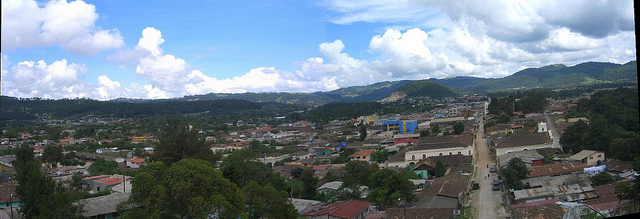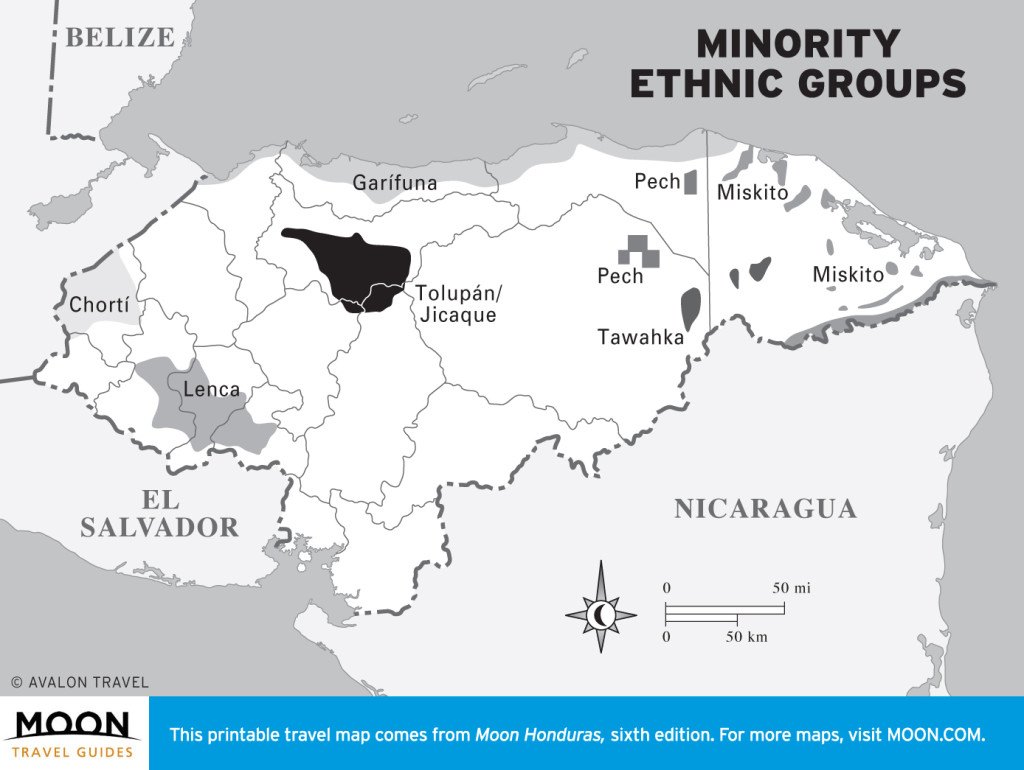
The town of La Esperanza, Honduras. Photo © Intibucatv, licensed Creative Commons Attribution Share-alike.
Founded with the assistance of a retired secondary school teacher from the United States, El Maestro en Casa is a program that serves the rural poor, many of whom have never finished the primary grades. Students also include those wishing to continue past the sixth grade. Most students are aged 16-25, and almost all are Lenca, an indigenous group of southwest Honduras (and eastern El Salvador). The area of La Esperanza is one of the poorest of Honduras.
Minority Ethnic Groups in Honduras
The organization’s four teachers travel by motorcycle on a weekly basis to six rural student centers outside of La Esperanza…The organization’s four teachers travel by motorcycle on a weekly basis to six rural student centers outside of La Esperanza, as well as teach weekly classes in the school center in La Esperanza. Short-term volunteers work with organic strawberry and vegetable production in the center’s greenhouse, or in construction, repairing roofs and laying tile or building fences. Volunteers who can commit to 2.5 months may work as academic teachers or in outreach, teaching classes in basic English, computers, art, music, crafts, and practical skills such as bicycle mechanics or cooking.La Esperanza is a quiet town, but there are several restaurants for volunteers who want to spend an evening out. There are natural thermal baths nearby and plenty of hiking in the surrounding hills.
La Esperanza, Honduras
tel. 504/2783-2728
[email protected]
Application Process: An application form is available online. To apply, email the completed form to [email protected].
Cost: None. Volunteers are responsible for their own accommodations and meals.
Placement Length: For short-term volunteers, there is a minimum placement of two weeks; for long-term volunteers, the minimum placement is 2.5 months.
Language Requirements: Basic to intermediate Spanish skills are required for short-term volunteers; intermediate to advanced Spanish skills are required for long-term volunteers.
Housing: Volunteers may choose between staying in the center’s dorm (US$25/week, no meals), with a local family (US$50/week, two meals daily), or in separate accommodations in La Esperanza, with meals in a local restaurant (weekly costs range US$75-100).
Operating Since: 1995
Number of Volunteers: Eight in 2012.
Excerpted from the First Edition of Moon Volunteer Vacations in Latin America.